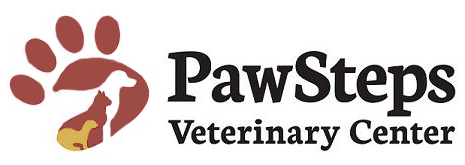Library
-
Ferrets commonly develop skin diseases, including infections with parasites (fleas, mites, ticks), bacteria, viruses (distemper), and fungus (ringworm). They are also subject to both benign and malignant tumors, including mast cell tumors. Adrenal tumors also cause hair loss and itchy skin in ferrets. All skin problems should be brought to the attention of your veterinarian, who will recommend the most appropriate treatment for the specific problem.
-
Skunks spray volatile compounds from their anal sacs if they feel threatened by a potential predator such as a dog. If sprayed in the face your dog may need veterinary care, as corneal damage can occur if sprayed in the eyes, and vomiting, diarrhea, or anemia can result if sprayed in the mouth.
-
Slippery elm is given by mouth and is used over the counter to treat cough and stomach upset in dogs and cats. Give as directed by your veterinarian.
-
Smectite (Bio-Sponge®) is an intestinal support supplement used in various animal species, including dogs, cats, horses, cattle, and small ruminants. It has adsorbent properties may help bind toxins, bacteria, viruses, and free-radicals in the intestinal tract.
-
Smoke inhalation injuries are caused by a combination of heat and airborne toxins. Clinical signs of smoke inhalation vary, depending on the materials contained within the smoke and how much smoke the cat inhales. Common signs include coughing, shortness of breath, eye injuries, and burns. Neurologic signs can also occur, especially in cases of carbon monoxide inhalation. Treatment typically involves oxygen therapy and other supportive care measures.
-
Smoke inhalation injuries are caused by a combination of heat and airborne toxins. Clinical signs of smoke inhalation vary, depending on the materials contained within the smoke and how much smoke the dog inhales. Common signs include coughing, shortness of breath, eye injuries, and burns. Neurologic signs can also occur, especially in cases of carbon monoxide inhalation. Treatment typically involves oxygen therapy and other supportive care measures.
-
The most common venomous snakes in North America include rattlesnakes, copperheads, cottonmouths, and coral snakes. Clinical signs vary, but generally there is extensive swelling that often spreads rapidly. Venomous snakebites are medical emergencies requiring immediate attention.
-
Dogs, like people, need to practice their social skills. Spending time with other dogs will help your dog hone his ability to read his friends’ body language and to communicate effectively. These skills decrease the development of dog related fear and aggression. Play groups in an organized or more relaxed setting are beneficial for both your growing puppy and adult dog. Canine and human socialization occur simultaneously and dog owners enjoy meeting new friends, too. Watching dogs play is a great way to reduce your stress level. Socializing should be pleasant for you and your dog, so find a comfortable group and setting and have fun!
-
Socialization is the process during which the kitten becomes familiar with people, other animals, and many aspects of their environment. Kittens are primed for socialization when they are between two and seven weeks old. As soon as kittens have settled into their new home, they can begin gentle exposures to a wide range of stimuli that they may encounter as adults.
-
Sodium chloride (hypertonic) ophthalmic is a topical medication used to reduce surface (corneal) swelling of the eye in cats and dogs. Sodium chloride is available without a prescription but should only be used under the direction of a veterinarian. It may be used “off label” or “extra label” to treat eye conditions in animals other than cats or dogs. Sodium chloride (hypertonic) ophthalmic comes in ointment and liquid drop form. Avoid use in animals with corneal ulceration or dry eye.

